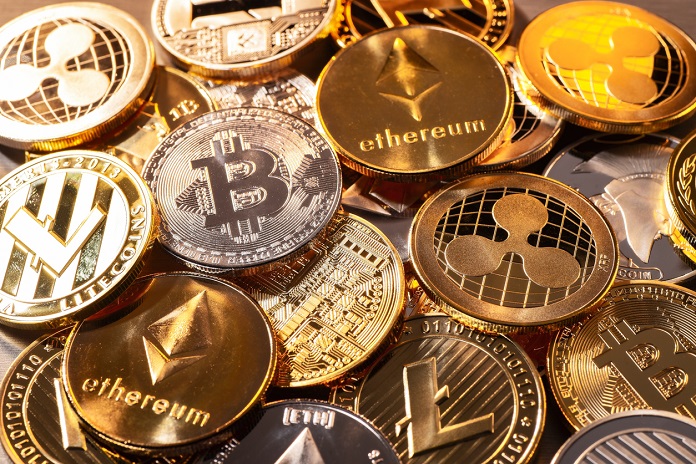Cryptocurrencies have become a significant part of the global financial landscape, and along with Bitcoin, altcoins have gained substantial popularity. However, as the altcoin market expands, so does the need for regulatory oversight. In this article, we will delve into the world of altcoin regulation, its importance, challenges, and global approaches. We will also discuss recent developments, the impact on the market, best practices for users, and the future outlook of altcoin regulation. In addition, if you are into investment, you must consider visiting an investment education platform using this website
Introduction to Altcoins
Altcoins, short for alternative coins, refer to any cryptocurrency other than Bitcoin. While Bitcoin remains the dominant player, altcoins have emerged as alternatives offering different features, technologies, or use cases. Examples of altcoins include Ethereum, Ripple, Litecoin, and many others. Altcoins often serve specific purposes, such as facilitating smart contracts, providing privacy features, or enabling faster transactions.

Understanding Cryptocurrency Regulation
Cryptocurrency regulation aims to establish a legal framework to govern the use, issuance, and trading of cryptocurrencies, including altcoins. The primary objectives of regulation are to protect investors, prevent money laundering and fraud, maintain market integrity, and ensure financial stability. However, given the decentralized and global nature of cryptocurrencies, developing effective regulations presents unique challenges.
Why Altcoin Regulation is Important
Regulating altcoins is crucial for several reasons. First, it provides a framework to protect investors from scams, frauds, and market manipulation. Clear regulations can promote transparency and accountability, reducing the risk of fraudulent projects and unscrupulous behavior. Second, regulation helps mitigate the potential risks associated with money laundering and terrorist financing, ensuring compliance with anti-money laundering (AML) and know-your-customer (KYC) regulations.
Challenges in Regulating Altcoins
Regulating altcoins presents several challenges. The decentralized nature of cryptocurrencies makes it difficult to enforce regulations uniformly across jurisdictions. Different countries have varying approaches to altcoin regulation, leading to regulatory fragmentation. Additionally, the rapid pace of technological innovation in the cryptocurrency space requires regulators to stay updated and adapt quickly to new developments.
Key Factors in Altcoin Regulation
Several key factors contribute to effective altcoin regulation:
- Government Policies and Laws: Governments play a crucial role in defining regulations for altcoins. Policies and laws need to strike a balance between fostering innovation and protecting investors and the financial system.
- AML/KYC Regulations: Anti-money laundering and know-your-customer regulations are essential for preventing illicit activities and ensuring compliance with global financial standards.
- Investor Protection: Altcoin regulations should prioritize investor protection, safeguarding against fraudulent projects, market manipulation, and ensuring proper disclosure of information.
- Market Manipulation and Fraud Prevention: Regulators need to address market manipulation practices such as pump and dump schemes, insider trading, and false advertising. Implementing measures to detect and deter fraudulent activities is crucial for maintaining market integrity.

Recent Developments in Altcoin Regulation
Altcoin regulation is an evolving landscape. Recent developments include:
- Increased scrutiny on altcoin offerings: Regulators are closely monitoring ICOs and token sales to ensure compliance with securities laws and protect investors from fraudulent schemes.
- Strengthening AML and KYC regulations: Governments and regulatory bodies are enhancing anti-money laundering and know-your-customer requirements for cryptocurrency exchanges and altcoin-related businesses.
- Collaboration between regulators and industry: Regulators are engaging with industry participants to gain insights, establish best practices, and develop effective regulatory frameworks.
Impact of Altcoin Regulation on the Market
Altcoin regulation has both positive and negative impacts on the market. On one hand, clear regulations can enhance investor confidence, attract institutional investors, and foster long-term market stability. On the other hand, excessive or overly burdensome regulations may stifle innovation, limit market access, and drive businesses to more crypto-friendly jurisdictions.
Balancing Innovation and Protection
Striking a balance between innovation and protection is crucial for altcoin regulation. Regulators must foster an environment that encourages technological advancements while safeguarding investors and the financial system. Collaborative efforts between regulators, industry participants, and stakeholders can help achieve this delicate balance.
Conclusion
In conclusion, altcoin regulation is a critical aspect of the evolving cryptocurrency landscape. It aims to strike a balance between fostering innovation and protecting investors and the financial system. As the altcoin market continues to grow, regulators around the world are developing and refining their regulatory frameworks. Altcoin users and investors should stay informed, conduct thorough research, and follow best practices to navigate the evolving regulatory landscape successfully.